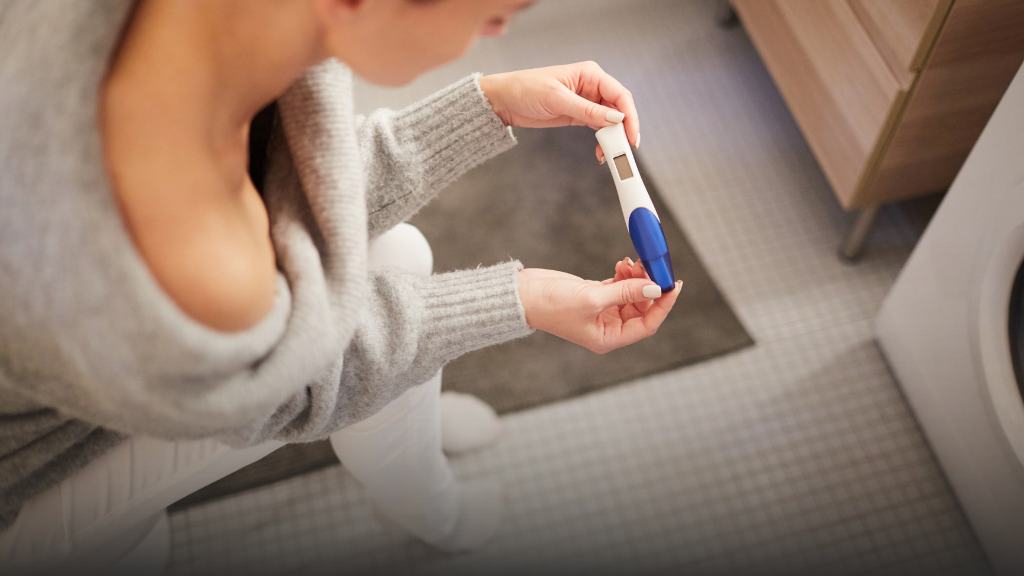
Table of Contents
Nowadays days, pregnancy tests are meant to be 100% accurate. They are foolproof in many regards. The tests have become simpler to take, but they still involve something we can’t exactly control – emotions.
Emotions play a significant role in pregnancy testing, as anybody who has ever sat over a tiny white disc filled with their urination while hoping for a specific result will attest. No matter how you feel, the following advice will help you comprehend the test.
You could get a home pregnancy test the moment you suspect you might be pregnant. These pregnancy tests operate by utilizing a urine sample. A hormone known as human chorionic gonadotropin (HCG), which is produced during pregnancy, will be recognized in the test.
A home pregnancy test: When to take it?
As soon as 14 days after conception, or the beginning of a pregnancy, you can take a test if you suspect you could be pregnant. On the first day of your missed menstruation, the most precise tests can find HCG. A urine sample from your first restroom visit of the day is preferable to other samples.
Despite the most reliable tests, waiting until the day after a missed period will provide more accurate results. This is because HCG is created once a fertilized egg adheres to the lining of your uterus. Early in your pregnancy, HCG is produced fast, thus waiting until after your missed period will result in a more reliable test.
Here are some of the best pregnancy test kits out there!
Performing a pregnancy test at home
If you’ve made the decision to test for pregnancy, there are various alternatives available in pharmacies and grocery shops. A prescription is not required to purchase a home pregnancy test.
You will either place several droplets of urine on a chemical strip or insert the strip into your urine stream while performing a home pregnancy test. To learn precisely how to take that particular test, read the instructions.
Most at-home pregnancy tests make the claim that they are 99% accurate when used as suggested. They are made to look for HCG in your urine. Here are some pointers for using a pregnancy test:
- Use the first urine sample you have when you get up in the morning to do the test. Your HCG levels are at their peak during this time.
- Avoid consuming a lot of liquids before the test. Your HCG levels may become thin as a result.
- Before beginning the test, carefully read the instructions. Take each action as directed.
Follow the guidelines
When confronted with the little pregnancy test that has the ability to change your life forever, you’re probably nervous, which is natural. However, take out the directions and carefully study them before you even enter the restroom.
Make sure you are doing it correctly; do not rely on what you recall from prior tests. Additionally, it will advise you of time constraints, like how long you must wait and the expiration date of the test.
Set a timer
When dealing with a pregnancy test, bring along your timer on your phone or a clock. You could think you’re a fantastic timekeeper. A clock can inform you if the test became positive at nine minutes and 30 seconds or at ten minutes and three seconds if the test instructs you not to read the findings after 10 minutes. It can make a significant difference.
Utilize a cup
Don’t freak out if the instructions say to hold the pregnancy test in your urinary stream. Don’t worry if you can’t shoot well or if you’re afraid you’ll goof up badly. Pour the urine into a cup. Simply place the pregnancy test’s absorbent end into the urine in the cup for whatever long it instructed you to hold it in your urine stream.
Results of home pregnancy tests
Not all tests are as accurate as they promise to be, despite the majority of them. Every test has a unique accuracy requirement as well as detailed guidelines to follow. When taking a test, it’s possible to have a false positive or false negative result.
Don’t worry if you’re concerned that taking certain prescriptions may alter your test results. The majority of medicines, including birth control, antibiotics, and other treatments, have no effect on the results of a pregnancy test. Additionally, alcohol won’t influence your outcomes. A false negative result will most likely result from testing too soon since the HCG level won’t be significant enough.
There is one exception to the rule that most drugs won’t alter the results of your at-home pregnancy test. You can have a false positive if you’re on reproductive medication. HCG, which may be found in fertility drugs, may be identified by the test and result in a positive reading even if you are not pregnant.
When your period hasn’t come and you think you could be pregnant, call your doctor and make an appointment for a blood test. Pregnancy can also be determined by a blood test because HCG levels are also detectable in the bloodstream.
Bottomline: Avoid depending completely on pregnancy tests
Pregnancy tests usually work well in detecting pregnancy. But you shouldn’t only depend on such outcomes. This assurance is crucial for women who are having discomfort or bleeding during pregnancy, as well as those who have had prior losses or ectopic pregnancies. An ultrasound will confirm the pregnancy and assess the early health of the embryo to verify if the pregnancy is viable.
Read also – What is Tokophobia? How Can It Be Cured or Treated?




